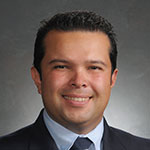The investment management field wasn’t even on Joseph Acevedo’s radar. The Puerto Rican who grew up in Queens, New York and was the first in his family to attend college remembers a time when he hadn’t even heard of private equity. But then he went to Harvard, worked on Wall Street, earned an MBA from the Wharton School of the University of Pennsylvania, and landed in business development at Univision. When a group of investment firms acquired the network in 2006, Acevedo took notice. He experienced the impact private equity can have and jumped when the opportunity arose to join Dallas-based Pharos Capital Group, LLC.
What inspired Acevedo to make the move to Dallas was an excitement for seeing individuals and companies succeed together. “In private equity, many stakeholders benefit,” he says. “I wanted to be part of something that has a real impact.” Pharos invests capital that comes primarily through pension funds. When Pharos does well, firefighters, police officers, nurses, teachers, and other public servants do, too. Capital gained goes to building privately held companies, and when those companies do well, they provide jobs and bolster communities.
Pharos manages more than $1 billion worth of assets in fields such as technology and business services, but its investing in the health care sector has Acevedo most excited. “Health care is fascinating and exciting for today’s investor because it is such a huge part of our economy,” he says. “It touches so many other sectors and represents considerable returns for those who can harness its potential.”
Simply put, certain industries are positioned to benefit from the continued rollout of The Affordable Care Act. It’s Pharos’s job to identify those companies with dividend potential and make wise investments. Acevedo expects to invest most heavily in preventive care, health technology, and medical devices.
The firm’s investment in Medical Care Consortium, Inc. (MCCI) demonstrates Pharos’s evolving philosophy well. Acevedo and his colleagues are looking to invest primarily in innovative companies that help underserved communities. Based in Miami, MCCI is owned and managed by Latinos, has a group of bilingual doctors, and takes a unique social approach. For example, MCCI hosts bingo nights where medical professionals can provide blood pressure screenings and other services. Thanks to Pharos’s investment, MCCI expanded into Texas. The company then sold to Humana in 2012 at an attractive return, demonstrating the mutual benefits for both Pharos and MCCI.
While many fund managers are nervous about Medicare reimbursements and government red tape, Acevedo says those risks are simply part of the territory now. Other private equity groups interested in making similar investments need to be in it for the long haul. “Health care is not an area you want to dabble in as an investor,” says Acevedo. “It’s too complex for that.”
As Acevedo knows—he and his wife had triplets last September—the Latino population is exploding in America. As it does, the Affordable Care Act is bringing broader access to health care and insurance. More than 30 million uninsured will become insured. Companies will be mandated to provide care for preexisting medical conditions. Latinos, who are generally underinsured, stand to benefit. Acevedo says those benefits will catalyze key changes. “The Hispanic community will become such a large component of the overall population that whatever impacts us will impact the nation,” he explains. The field will have to respond and address cultural and practical sensibilities. As it does, Pharos will be there to identify and invest in the innovative companies seeking to make a real difference in the industry.

